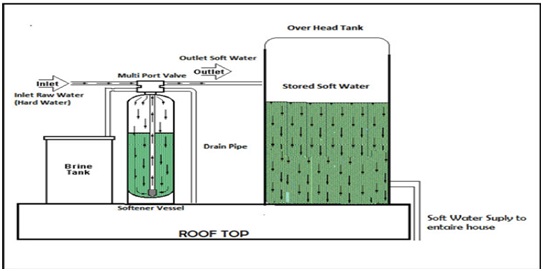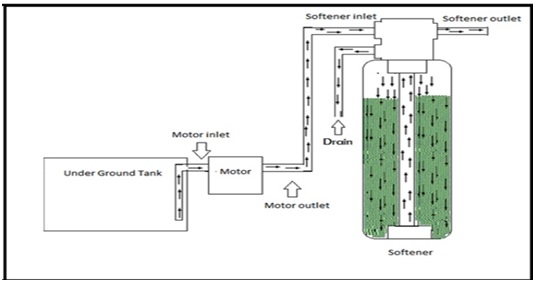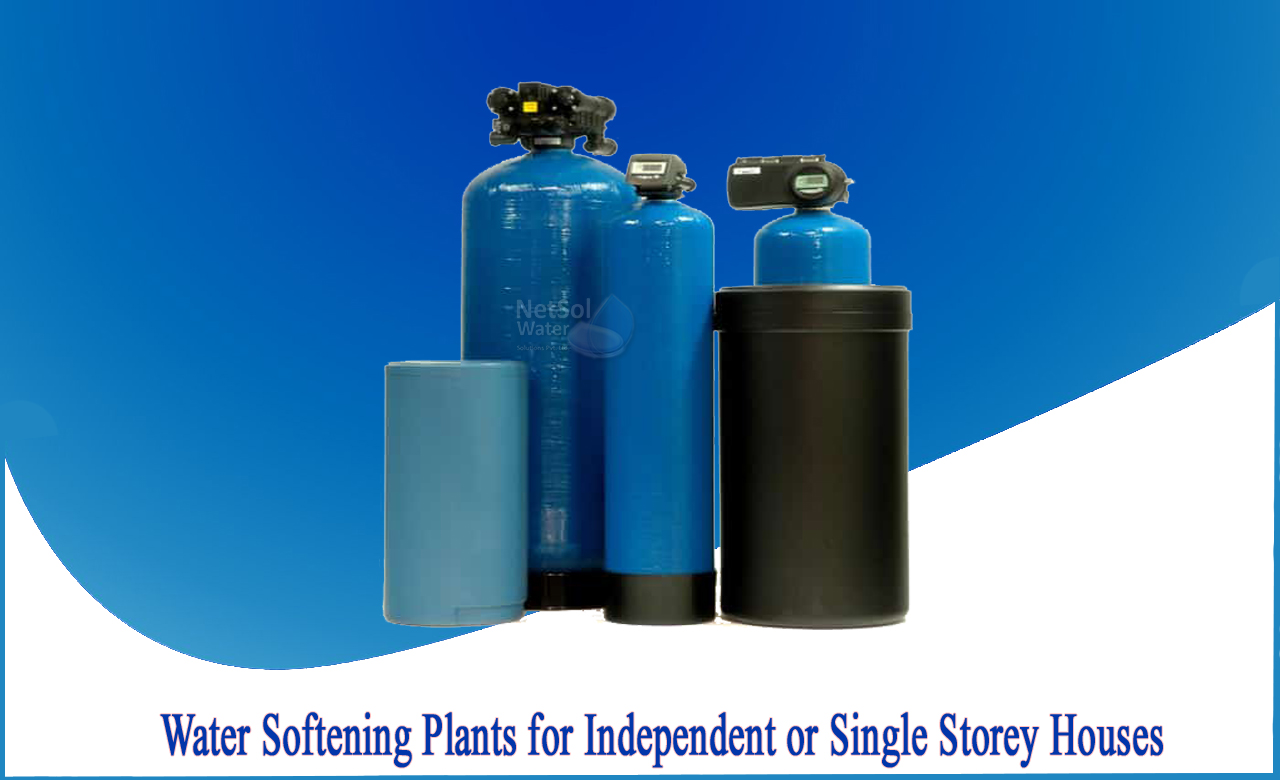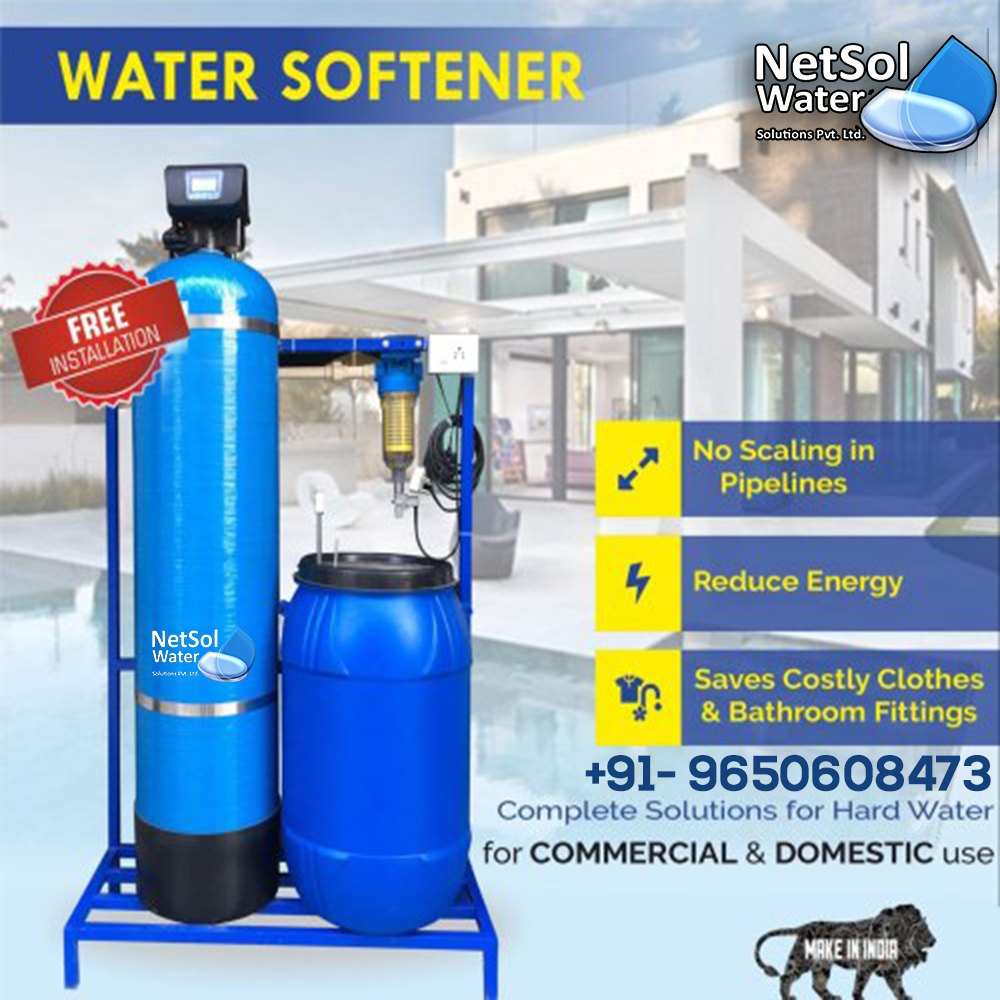Which type of water softener plant install for House?
A water softener is a device that softens hard water by eliminating the minerals that cause it to become so. Hard water is defined as water that contains a high concentration of calcium and magnesium. Hard water causes a number of issues in your home that you may or may not be aware of. Hard water is noted for clogging pipes, making soap and detergent dissolving in water more difficult, and leaving water marks behind. It causes scale accumulation in your pipes and water appliances, lowering your water heater's performance.
The usage of additional energy to heat water will result in higher energy costs. In hard water, soap is less efficient because it interacts to form the calcium or magnesium salt of the soap's organic acid. As a result of the soap scum, skin bathed with hard water is commonly described as scratchy and dry. Hair that has been washed with harsh water has been described as dull and sticky.
Some people may notice a couple of these hard water effects, while others may have become accustomed to the way their clothes, bedding, skin, and hair feel after washing. Protecting your property with softened water will help to extend the life of your pipes and appliances by preventing scale accumulation and clogs.
A water softener can be used to treat hard water and lessen its negative effects. Water softeners are specialized ion exchanges that are used to remove positively charged ions from water. Anti-scale systems convert calcium ions into stable calcium crystals that won't stick to pipes, surfaces, hardware, or other fixtures. The crystals are so tiny that the water flow quickly washes them away. They are fully safe, neutral, heat resistant, and stable, and will not adhere to any surfaces, including pipes and heaters, to form lime deposits.
When compared to untreated hard water, water softened with a water softener has a number of advantages:
>Silverware, glassware, mirrors, tiles, automobiles, and any plumbing fixtures will be cleaner and shinier as a result of the laundry.
>Skin that is softer and hair that is cleaner and smoother.
>Cleaning is easier and housework is reduced when soap curd is reduced.
>Because of the rich lather that softened water and soap make, it uses less soap and shampoo.
>Clothes that are less scratchy due to the absence of hard minerals trapped in the fabric. Fabrics last longer, and whites remain whiter without the dingy grey that hard water causes.
>Coffee machines, ice makers, dishwashers, water heaters, and laundry equipment all benefit from this treatment.
>Saves money on monthly energy bills and appliance repairs.
Now this water softener is essential for houses as we spend most of the time indoor and do all the stuff related in homes only. Way out for setting a water softener is present for every situation, may it be an office building, an apartment, restaurants or independent or single storey houses.
In an independent home, there are two ways to install a water softener:
1. Along with the overhead tank, on the roof top:
In such circumstances, the water softener is placed directly before the storage tank's intake. Raw water first passes through a water softener, which removes hardness ions. The tank is filled with soft water. This ensures that soft water is available throughout the house.

2.On the underlying ground
If they have enough space, some individuals opt to keep the water softener unit on the ground itself. In such circumstances, the motor's outlet is connected to the water softener unit. The hard water from the motor enters the water softener, where it is treated before being discharged into the overhead storage tank.If there are traces of sand in the groundwater, a Sand Filter unit should be installed before the Water Softener to trap all of the sand before it enters the Water Softener.

Netsol Water is a manufacturer of various types of Water Softeners, be it for industrial purpose or domestic purpose or commercial purpose. We are just a call away!




